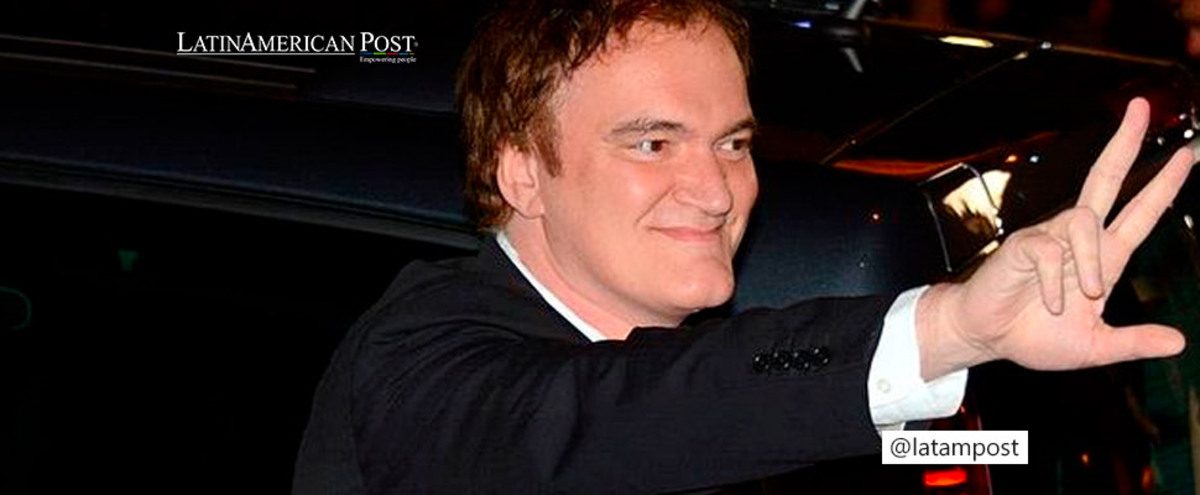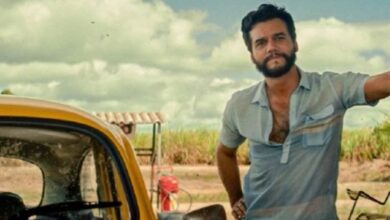Quentin Tarantino Retires: Five Films with which Great Directors Said Goodbye to the Cinema
With the announcement that Quentin Tarantino is preparing to shoot his last film, we look back at five films with which great directors bid farewell to cinema.

Photo: Georges Biard
LatinAmerican Post | Juan Andrés Rodríguez
Listen to this article
Leer en español: Quentin Tarantino se retira: Cinco películas con las que grandes directores se despidieron del cine
In 2014, Quentin Tarantino announced that he was retiring after filming his tenth film. A few years earlier, he had given indications of this plan when he commented that after the sixties he would prefer to dedicate himself to writing novels and film literature, since he considers that the direction corresponds to the young and feels that his work corresponds to the old guard. These statements became a prophecy that is now to be fulfilled.
On March 14, exactly two weeks before his sixtieth birthday, it was confirmed that Tarantino had completed the script for what would be his last film, entitled "The Movie Critic" and would begin filming in the second half of the year. Although details are unknown, it is speculated that it is a biographical fiction by Pauline Kael, one of the most influential film critics of the 20th century, characterized by her sharpness and opinion contrary to her contemporaries.
Although Tarantino can always change his mind, everything seems to indicate that he is firm in his decision to say goodbye to the big screen. So it is appropriate to remember five films that represent the last coming of great directors.
"That Obscure Object of Desire", Luis Buñuel (1977)
The master of surrealism Luis Buñuel joined forces for the last time with Fernando Rey for this tale of obsession and control, based on the novel “The Woman and the Puppet” by Pierre Louÿs. In the middle of a train trip to Paris, the passengers are surprised when Mathieu (Fernando Rey) throws a bucket of water at a woman who is chasing him. Concerned about his strange behavior, he proceeds to give an account of his stormy relationship with Conchita (Carole Bouquet and Ángela Molina), the woman in question, who for years has seduced him without allowing their relationship to be consummated.
In 1978, the film was nominated for the Oscars for Best Adapted Screenplay and Best Foreign Language Film, an award that Buñuel had won three years earlier with "The Discreet Charm of the Bourgeoisie" (1974). Film critic Adrian Martin considers that the film represents the ideal balance between the three stages of Buñuel's career, and that it mixes the surrealism of his early days with the melodrama of the fifties and the erotic comedy of his last years.
"Fanny and Alexander", Ingmar Bergman (1982)
It is still debated whether "Fanny and Alexander" can be considered the last film by Ingmar Bergman. Chronologically, that title corresponds to "Saraband" (2003), the sequel to the miniseries "Scenes from a Marriage" (1973), but both were intended by Bergman as television productions, while "Fanny and Alexander" was conceived as his retirement film from the cinema.
Set at the beginning of the 20th century, Bergman presents in the film the changes in the lives of siblings Fanny (Pernilla Allwin) and Alexander (Bertil Guve) after their father dies and their mother marries a cruel bishop, who punishes them hard for Alexander's creative inventions. It is a semi-autobiographical story of Bergman's childhood and is considered the epitome of his filmography (which has more than 60 titles). It is his most personal work and mixes his existentialist themes in a cinematic odyssey full of energy to be narrated from a child's perspective.
Read also: The 5 Best German Films of All Time
"Once Upon a Time in America", Sergio Leone (1984)
Sergio Leone said goodbye with his dream movie. A pioneer of the spaghetti western, a subgenre of 1960s Italian cinema that revitalized the American western, to which Tarantino pays homage in “Once Upon a Time in Hollywood” (2019), Leone was invited to the United States in 1967 to direct new projects. His intention was to move away from the western and wanted to adapt Harry Gray's novel "The Hoods" as an epic crime film, but could not find funding for the project. After filming "Once Upon a Time in the West" (1968) and "Duck, You Sucker!" (1971), Leone was finally able to meet his goal in 1984, bringing closure to what is now known as the "Once Upon a Time" trilogy.
Starring Robert De Niro and James Wood, the film follows the relationship of two childhood best friends who begin to lead gangsters in the midst of organized crime in New York in the first half of the 20th century. The original version of the tape lasts 3 hours and 49 minutes, but this was cut for distribution, which led to its critical and box office failure. Its restored version is considered one of the best films ever.
"No Home Movie", Chantal Akerman (2015)
Last year Chantal Akerman's “Jeanne Dielman, 23 quai du Commerce, 1080 Bruxelles” (1975) became the first film directed by a woman to top Sight and Sound's list of the best films of all time. Akerman was 23 years old when she directed the film, the second of her filmography, which deals with the prostitution of housewives. Her latest work was the documentary "No Home Movie" focused on conversations with her mother, an Auschwitz survivor, whom she defines as the center of her filmography. Akerman committed suicide at age 65, two months after the film's release.
"Varda by Agnès", Agnès Varda (2019)
Agnès Varda never left the cinema. A pioneer of the French New Wave and a master of the documentary, Varda prepared to end her filmography with a retrospective. She is the author of classics such as "Cléo from 5 to 7" (1962) and "Vagabond" (1985). In "Varda by Agnès" the director sits down to discuss her career of more than half a century and the creative process from three principles: inspiration, creation and sharing. This journey also represents a mechanism with which Varda accepted her mortality from terminal cancer, from which she died a month after the film's premiere.




